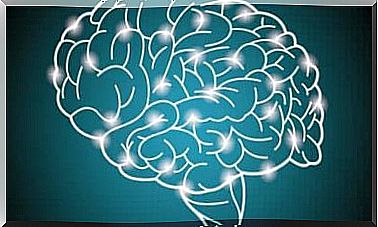The 6 Dimensions Of Psychological Well-being

When you think that someone is “in good health ” or ” healthy “, it is possible that you may think that the individual is in good physical shape. But the concept of health includes physical health, as well as emotional and psychological well-being. It includes dimensions such as self-acceptance, social skills or the perception of control over what is happening in your environment.
The World Health Organization (WHO) defines mental health as “A state of perfect physical, mental and social well-being, and not just the absence of ailments and diseases.”
Psychological well-being thus includes a group of sensations that refer to how we judge our lives on a global level. Moreover, it is not necessarily associated with experiencing cozy situations or satisfying our personal desires because it would be fleeting. Instead, it refers to a wider set of dimensions.
“The person who lives in harmony with himself lives in harmony with the universe.”
– Marco Aurelio –
The psychologist, Carol Ryff, has dedicated his life to studying which factors or dimensions make a significant contribution to our quality of life. The researcher has developed a questionnaire that aims to measure the individual’s psychological well-being, and has drawn out 6 criteria that are essential for achieving self-realization and the individual’s potential. The studies conducted by this psychologist using the questionnaire for emotional well-being show that psychological well-being is related to one’s age, gender, socio-economic status and ethnicity (Ryff and Singer 2008).

The 6 dimensions of psychological well-being
The six dimensions reflected in psychological well-being are as follows:
1. Self-acceptance
This dimension speaks of acceptance of every aspect of an individual and of one’s own past, just as it happened. It does not mean falling into a hole of paralysis to want to change or intervene in what happened.
Think about whether you accept your body, your emotions and your thoughts. If you do, you will get a more positive image of yourself. Instead, if you have low self-esteem and struggle to accept who you are, it is possible that because of this dissatisfaction you will feel so overwhelmed that you do not even know where to start changing the aspects you can actually intervene in.
2. Control over your surroundings
This dimension alludes to the ability to handle a difficult environment and adapt to adverse conditions.
If you have a high perception of your control over your surroundings, you will feel able to influence your environment and deal with complicated situations. Instead, if you have low control over your surroundings, according to the psychological well-being questionnaire, you will have greater difficulty overcoming the adversity that arises in your daily life.
“Life is a journey, and if you fall in love with that journey, you will be in love forever.”
– Peter Hagerty –
3. Positive relationships with others
This dimension measures the ability people have to interact with others in an open and sincere way.
If you are able to have satisfying relationships with others, you will promote attachments that will give you better emotional quality . This means having greater empathy and openness to people. If you have a lower score on this scale, it is possible that you are struggling to interact with others. You may have difficulty opening up and trusting others, as well as having trouble maintaining your relationships.

4. Autonomy
This dimension evaluates the independence of people in different aspects of their lives. The feeling of being able to choose and make one’s own decisions, to maintain personal criteria and personal and emotional independence despite the fact that others do not agree.
A high degree of autonomy means that you are able to use a greater resistance to social pressure and your own impulses. If you have a low degree of autonomy instead, you can let other people’s opinions guide you. You can also be aware of what others are saying or thinking about you and can let yourself be led by social pressure in your social circle.
5. Personal development
This dimension measures the ability people have to learn from themselves, be open to new experiences and challenges.
If you promote your personal growth, it is possible that you feel like you are on a continuous learning journey. You may feel that you have the ability to learn from what you receive and know that you have the necessary resources to improve yourself. If this personal growth is not your style, you may feel stuck, bored and demotivated. You may not really want to develop new abilities and new types of growth behaviors. Or you may just feel incapable of it.
6. Purpose of life
This measures the need people have to find a purpose that will make sense to their lives. People need to set clear and acceptable goals for themselves. These must be realistic goals.
If there is a high score in this dimension, it means that you feel that your life matters. You make sense of your past, present and future. If you instead score poorly in this dimension, you do not have a clear purpose. It is possible that you feel that your life lacks direction, or you may even feel disoriented and lost.
7. Social support: the best pillar of our well-being
Social support is a protective factor against various diseases. It is very important how our social relationships are and also how we perceive them.
How does emotional intelligence affect psychological well-being?
People who are emotionally intelligent, are more optimistic, have greater self-esteem and are more empathetic. This contributes to the improvement of our psychological well-being. People who know how to identify their emotions feel more satisfied with themselves. Therefore, they feel a greater sense of overall well-being.
“If you encourage your personal growth, it is possible that you feel like you are on a continuous learning journey. You may also feel that you have the ability to learn from what you receive and you know that you have the necessary resources to continue to improve. “

How can you improve your psychological well-being and have a more fulfilling life?
Find your passion
It can be at work as this is where you spend many hours of your day. And it’s best if you use them to do something that motivates you. But you can also find something you like in a hobby that makes you feel satisfied. For example, music, sports or crafts.
Do not try to change yourself
Accept yourself in the dimensions you cannot change. Trying to change oneself will generate unrest and rejection. You will improve your well-being if you give yourself and your own nature a chance. That way, all the positive things you find will serve to improve your self-esteem because you will recognize it as your own. The same will happen with the negative things you find.
Surround yourself with people who have a good energy
Positive relationships, being with people you like, who meet you, are an important factor that directly affects your physical and emotional well-being. Toxic people will reduce your mental well-being and add stress to your life.
Learn from your mistakes
Not everything in life will happen as you planned. Knowing how to adapt to your relationships and how to deal with your frustrations is an important part of leading a happier life with fewer expectations that deviate from reality. Remember that you are imperfect, just like the rest of us. This is something you simply cannot change. It is in your hands to take advantage of the positive side of your own imperfection.

Dare to try new things
Stepping out of your comfort zone and exploring unfamiliar areas will keep you active and motivated. No matter your age, there are always new places to visit, people to meet and things to learn. For example, try new activities, meet new people, follow new routes to work, etc.
Believe in your own potential!









